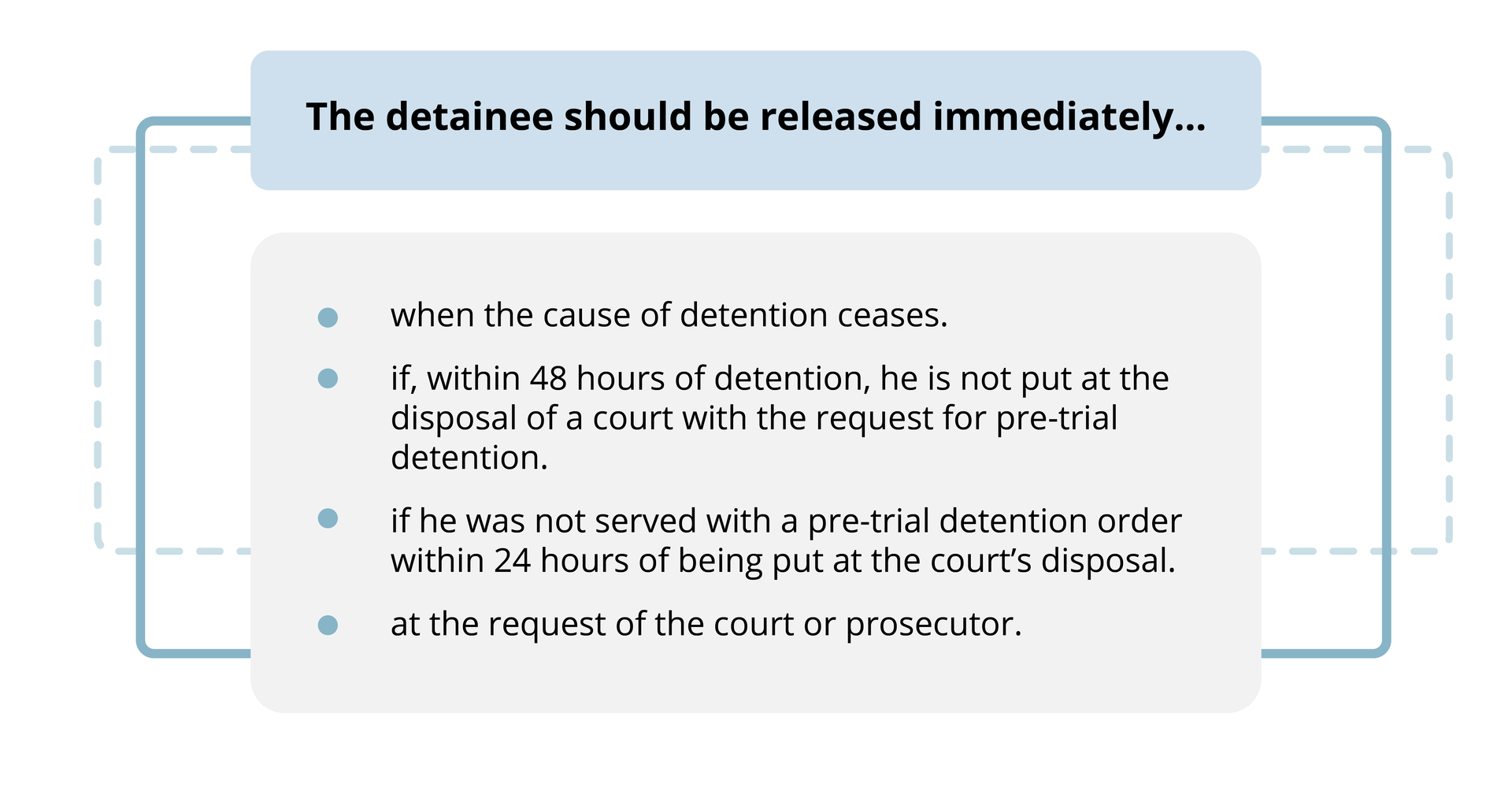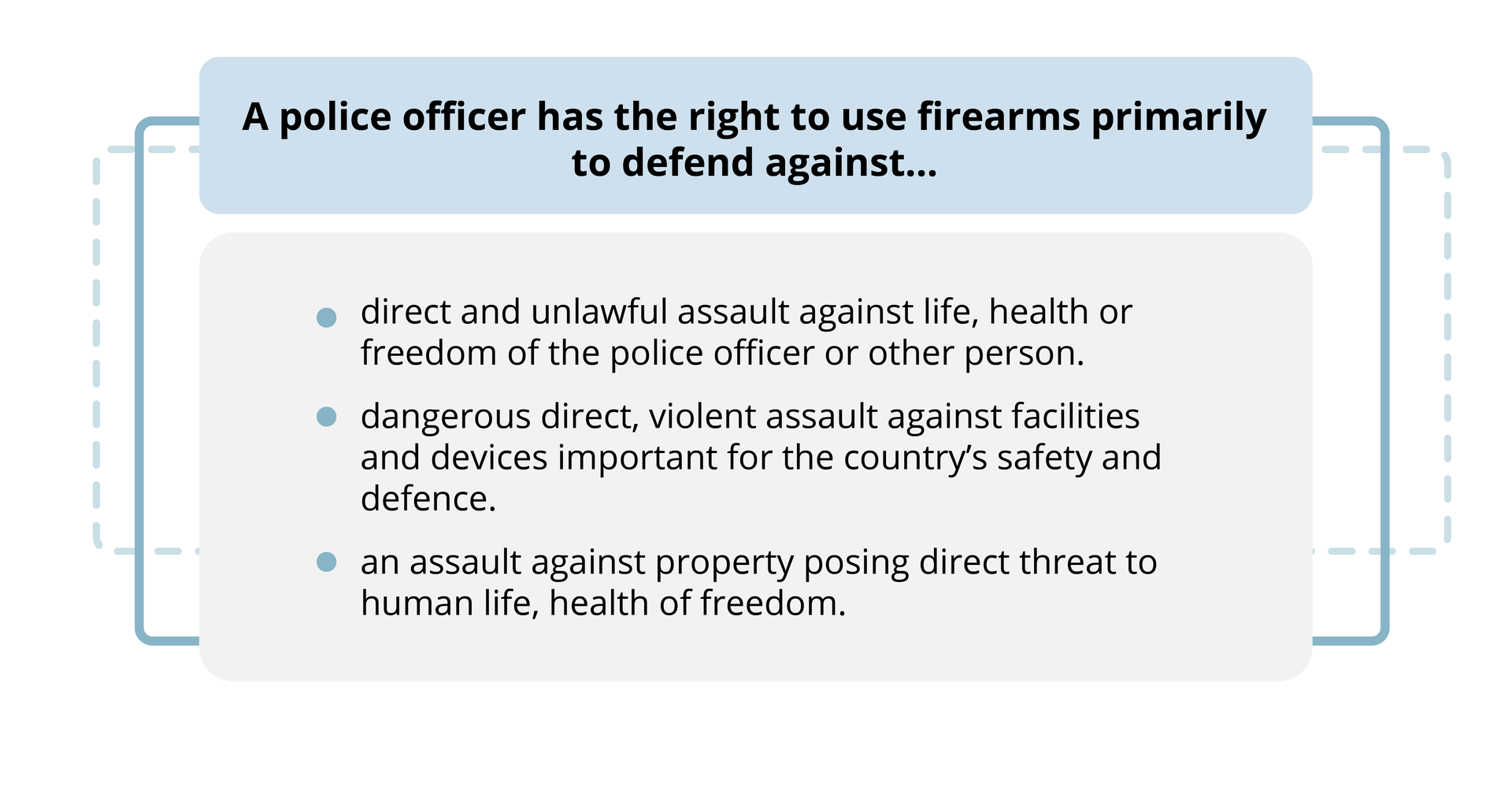Investigative bodies – the police and the public prosecutor’s office
You are able to explain what the place of police forces in public administration structure is.
You are able to present the role of a public prosecutor in criminal proceedings.
You will be able to analyze the most important tasks of the police and the public prosecutor’s office.
You will be able to explain the rights of a victim in preparatory criminal proceedings.
The public prosecutor’s office consists of the Public Prosecutor General, the National Public Prosecutor, the Public Prosecutor General’s other deputies, and public prosecutors of universal prosecutorial bodies, as well as public prosecutors of the Institute of National Remembrance – Commission for the Prosecution of Crimes against the Polish Nation.
The Public Prosecutor General is the chief prosecutorial body. The office of the Public Prosecutor General is held by the Minister of Justice.
Public prosecutors of universal prosecutorial bodies include public prosecutors of the National Public Prosecutor’s Office, provincial public prosecutor’s offices, regional public prosecutor’s offices and district public prosecutor’s offices.
The public prosecutor’s office executes tasksexecutes tasks related to prosecuting crimesprosecuting crimes, and maintains law and order.
A public prosecutor is obliged to administer the acts specified by laws in compliance with the principle of impartiality and equal treatment of all citizens.
The police is a uniformeduniformed and armed force serving the society and aiming at the protection of people’s safety and the maintenance of public safety and order.
The police consists of the following services:
criminal service,
prevention service
the service providing support for the police activities in the field of organisation, logistics and technology.
Within the scope of their duties, the police carries out the following activities in order to identify, preventprevent and detect crimesdetect crimes and petty offences: preliminary investigation, criminal investigation and administration and order‑keeping activities. The police also carries out tasks on instruction of the court, prosecutor, state administration and local government authorities.
In the course of performing official duties, police officers shall be obliged to respect human dignity, as well as observe and protect human rights.
Police officers performing activates have the right to, among others:
request identity cards from people in order to ascertainascertain their identity,
detain people,
search persons and premises,
perform personal checkspersonal checks as well as search through baggage and inspect cargocargo in ports and stations, as well as in means of land, air and water transport, in case of justified suspicionsuspicion that a forbidden act subject to the penalty has been committed,
observe and record events in public places.
A policeman who requests an identity card of a person must provide his rank, name and surname in a way that makes it possible to record these data, as well as the legal basis and the reason for taking action. The identity of a person can be established on the basis of an ID card, passport, foreign ID card and other unquestionable document provided with a photograph and marked with a number or series, as well as on the basis of a statement of another person whose identity was established on the basis of the saidthe said documents. A police officer may give up on requesting the identity of a person whom he personally knows.
A person who deliberatelydeliberately deceives a police officer about her own or other person's identity or as to her citizenship, profession, place of employment or residence, is liable to a finefine. After completing the identification activities, the police officer should inform the person he has identified about her right to submit a complaint to the prosecutor on how the activities that were carried out.
The police has the right to detain a suspect if there is a reasonable suspicion that he has committed a crime. There must also be a fear of the suspect trying to hide or escape or cover up the traces of the crimecover up the traces of the crime. Detention can only be used if other measures have proved to be pointlesspointless or ineffective. It should be performed in a way, that minimizes the violation of the personal rights of a person against whom it was applied. The detainee should be informed immediately about the reasons for detention and his rights, including the right to seekseek the assistance of a lawyer. A report should be made of detention.

In the case of unfoundednessunfoundedness, illegality or improprietyimpropriety of detention, the court notifies the prosecutor and the superior body of the authority that has imposed the detentionimposed the detention.

A firearm may also be used against a person who ignores the call to immediately drop weapon or other dangerous tool, the use of which may threat life, health or freedom of the police officer or other person, or against a person who attempts lawlesslylawlessly and by force to seize firearms from the police officer or other person authorised to carry weapon. Police officers are also allowed to use firearms in direct pursuitpursuit of a person, to detain a person or prevent an escape of a detainee. Before the firearm is used, the officer should shout „Police”, call a person to drop his arms and refrain from escaping or using violence, warn about the possibility of using a weapon (e.g. „Freeze or I’ll shoot!”) and then give a warning shotwarning shot. In the event of a direct threat to life, some of these activities may be waivedwaived. The firearm should be used in a way doing the least possible damage to the person against whom the firearm was used.
Other coercive measures available to the police are for example:
physical strength,
handcuffs and truncheontruncheon,
aqueous incapacitating meansaqueous incapacitating means,
dogs or horses,
non‑penetrating missilesnon‑penetrating missiles (e.g. rubber balls),
chemical incapacitating agentschemical incapacitating agents (e.g. tear gasestear gases) and stun guns (tasers)stun guns (tasers),
pyrotechnics with stunning or dazzling propertiespyrotechnics with stunning or dazzling properties (e.g. stun grenadesstun grenades).
In the case of women in apparentapparent pregnancy, people whose appearance indicates the age of up to 13 years, and people with visible disability only physical strength may be used in the form of incapacitating techniquesincapacitating techniques. The measures of direct coerciondirect coercion are used in a manner necessary to achieve the purposes of this use, proportionally to the degree of danger, by choosing a measure with the least possible discomfort.
Any natural person, whose rights protected by the law has been directly violated or threatened by a crime, is recognized as a victim by law and may demand that her rights of the victim are respected. This also applies to closest relatives of such a person.
The main goal of law enforcement agencies is to detect crimes and prosecute perpetrators. To this end, they conduct investigations. The most important law enforcement agencies in Poland are the prosecutor's office and the police. In addition to them, law enforcement includes also the Military Police, Central Anticorruption Bureau, Internal Security Agency, Border Guard and Customs Service.
In conducting their activities, law enforcement officers must comply with applicable law. However, in the circumstances specified in the laws, they have the right to use firearms, direct coercion measures, detention and to ask citizens for identification. The officers of the investigative bodies are subject to special legal protection - crimes against them are subject to more severe punishment than to other people.
Listen to the abstract recording to review the material and new vocabulary. Then do the vocabulary exercise. Match the pairs: English and Polish words.
zacierać ślady przestępstwa, wykrywanie przestępstw, załatwiać, prowadzić (sprawy), zapobiegać przestępstwom, strzał ostrzegawczy, podjąć kroki, ścigać przestępstwa, pod tym względem
| warning shot | |
| to prosecute crimes | |
| to handle | |
| to take measures | |
| to prevent crimes | |
| in that regard | |
| detection of crimes | |
| to cover up the traces of a crime |
Keywords
police, public prosecutor’s office, Public Prosecutor General, National Public Prosecutor, Institute of National Remembrance – Commission for the Prosecution of Crimes against the Polish Nation, Minister of Justice, provincial/regional/district public prosecutor’s offices, prosecuting crimes, use of firearms, coercive measures, rights of a victim of a crime, Central Anticorruption Bureau, Internal Security Agency, Border Guard, Customs Service
Glossary
realizować zadania
ścigać przestępstwa
załatwiać, prowadzić (sprawy)
podjąć kroki
inwigilacja, nadzór
gromadzić
zgodnie z
przewidywać
zgodność
umundurowany
obejmować, zawierać
bezprawny
atak
zapobiegać przestępstwom
pod tym względem
wykrywanie przestępstw
potwierdzić
kontrola osobista
ładunek
podejrzenie
wymienione
celowo, świadomie
oszukać
grzywna
zacierać ślady przestępstwa
bezcelowy
szukać, zasięgnąć
być postawionym do dyspozycji sądu
bezzasadność
nieprawidłowość
przeprowadzić zatrzymanie
zamach
stanowić zagrożenie
pościg
strzał ostrzegawczy
odstąpić
pałka policyjna
wodne środki obezwładniające
pociski niepenetracyjne
chemiczne środki obezwładniające
gaz łzawiący
paralizator
Nagranie dostępne na portalu epodreczniki.pl
Nagranie słówka: pyrotechnics with stunning or dazzling properties
środki pirotechniczne o właściwościach ogłuszających lub olśniewających
granat hukowy
widoczny
ciąża
techniki obezwładniające
przymus bezpośredni
przede wszystkim
utajnienie